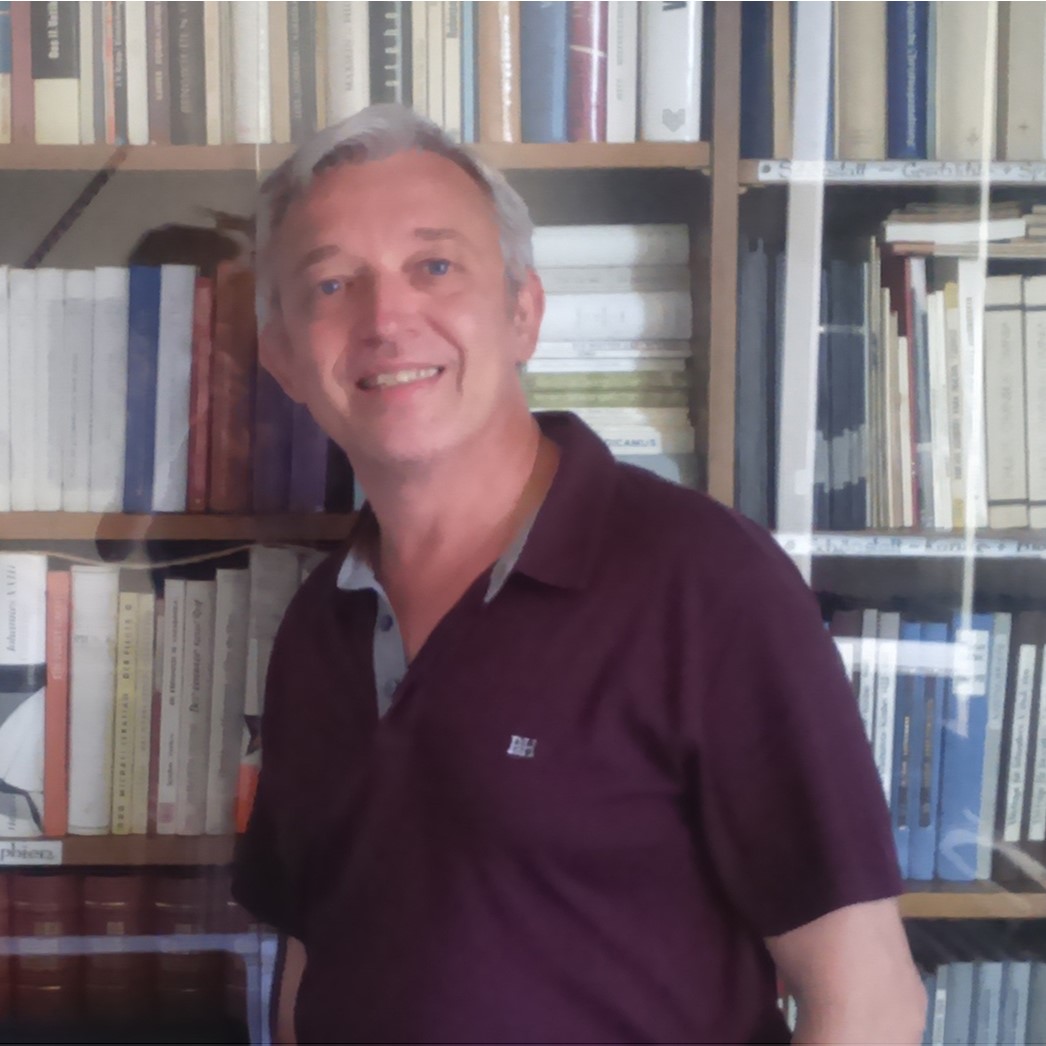
Javier Barraca, Director of the International Research Group, BIO-AESTHETICS
About the Author
He was born in Zaragoza (Spain), on 04-15-1964. He graduated in Law and Philosophy at the U.C.M. (Madrid, Spain). He received his doctorate in Philosophy with a thesis on creativity and Arts, at the U.C.M., in 1992. After his stage in Sorbona University (Paris, France), he also received his doctorate on Law with a thesis about Levinas´ thought on Human rights. He is a writer and a poet, and that is why he has always reconciled his academic and literary vocation. Director of the Chair of Aesthetics of the Juan de Ávila University Association and Secretary of the Aedos Aesthetics Chapter. He works as a Professor of Philosophy at URJC since 2006. Nowadays, he is Director of the International Research Group on BIO-AESTHETICS. He has been a finalist and winner in numerous literary competitions. He has published numerous articles and books on Philosophy, and several works of creation, from poetry to novels or short stories and essays.
Perhaps, in some sense, the really new strategy for teaching the Humanities in this century involves connecting with certain ancient historical concepts, such as the unity of knowledge…
The fragmentary doesn’t seem to be the destiny of our present society?
Centuries ago, the Humanities were not separated into different branches to the extent that they are today. Rather they were conceived as parts of the same unity, a unique tree — that of Science.
In my personal opinion, there is an activity that could help to restore the unity of this field: that of the Arts.
The Arts have the potential to teach and contribute to the Humanities in a desirable way. But why? And how?
First of all, the Arts refer us to aesthetics, a truly important part of the human condition. Beauty helps us to contemplate, to reflect, to ask questions of ourselves, to relate to others, and to communicate.
The Arts may also help us to seek our meaning in life, our ‘vocation’, our personal path to happiness.
Let me mention a reason for that: there is something really ‘personal’ in the Arts. And the heart of the Humanities is that of our own person, our essence as different and unique.
But how can we learn and teach human values through the Arts?
Masterpieces from all cultures and time periods teach us deep lessons about the human condition. We must share them with our students, and not only that: we must talk about beauty and the Arts. But talking seriously about a concrete artistic masterpiece or about aesthetics, demands an attitude of respect and compromise, commitment. We have to read and to approach them in a very personal way, relating their experiences with our own life. Nouwen did this with Rembrandt´s ‘The return of the prodigal son’.
Finally, the Arts will, as ever, develop our creativity. We all have to create! We are creative!
Creativity is not only for some human beings. We are all artists.
So teaching the Humanities through the Arts not only means reading, listening to, or looking at the works of others. We and our students should write, sing, draw, or paint, etc.
This is why I believe that we must teach the Humanities — showing the guiding questions of our lives — using the Arts, beauty, drama, poetry, music, photography and so on.

